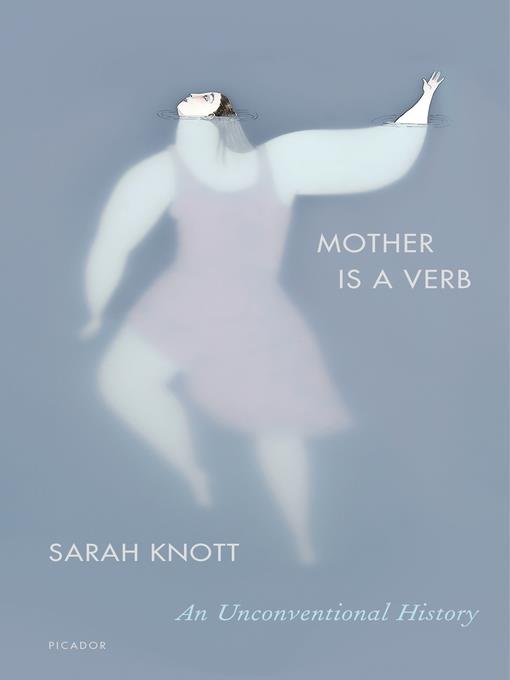
Mother Is a Verb
An Unconventional History
- اطلاعات
- نقد و بررسی
- دیدگاه کاربران
نقد و بررسی

February 1, 2019
An exploration of mothering, a capacious, complex, and creative experience.Historian and mother of two, Knott (History/Indiana Univ.; Sensibility and the American Revolution, 2009) grounds her illuminating investigation in her own experience of pregnancy, delivery, and infant care. Drawing on a prodigious number of histories and archival sources, she teases out anecdotes and testimony from "slim shards of evidence," sometimes "a single remark in a published diary, a stray sentence or two in government-sponsored interviews with formerly enslaved men and women, a handful of letters in manuscript, a seventeenth-century church court record." Evidence is especially slim for enslaved or working-class mothers who were illiterate or those, such as Native Americans, who conveyed their experiences orally, but Knott has managed to include their voices--along with gay and trans parents--as much as possible as she examines assumptions about conception, how and when pregnancy was determined, and responses to miscarriage, such as hers, which left her fearful of infertility. Pregnant again, perceiving her baby's "inner touch" inspired her search for historical mentions of quickening among 17th-century noblewomen and contemporaneous field slaves on Southern plantations. As her pregnancy progressed, she thought about terms for heavily pregnant women, ranging from "great-bellied" in the 16th and 17th centuries to "sticky-sweet euphemisms" of 19th-century working-class slang: "in the pudding club" or having "a bun in the oven." After her son was born, Knott faced the "humiliation and excess" of nursing. From the mid-18th century and throughout the 19th, she discovered, "whose breast? remained the central concern about holding and feeding" until "sentimentalism" ushered in "a new way of venerating motherhood in popular culture" and made wet nurses obsolete. Interrupted sleep, caring for a colicky infant, and weighing advice from friends, grandmothers, and child raising manuals all propelled Knott into libraries. She wonders about who wrote and actually read how-to books. "Mothering," she realizes, "is tangible, sensory, and material"; "it unfolds at first hand. Babies are never pure thought experiments."A fresh, lively narrative of personal and historical memory.
COPYRIGHT(2019) Kirkus Reviews, ALL RIGHTS RESERVED.

February 25, 2019
Historian Knott (Sensibility and the American Revolution) explores the concept of mothering throughout history in this intricate and complex narrative. Knott views the practices of mothering through the lens of such actions as conceiving, birthing, cleaning, feeding, sleeping, and being interrupted. The latter, she notes, is a constant condition of motherhood (“Before the baby,” she writes of her own experience, “my daily routine had been coordinated with the rhythms of working life—teaching, meeting, writing deadlines”). Knott has scoured the historical research on mothering, coming up with “shards” gleaned from journals, diaries, letters, court records, and anthropological fieldwork. She writes of the 17th-century English medical practitioner Sarah Jinner, who referred to late pregnancy euphemistically as “the rising of the apron”; of 18th-century Cherokee women who “removed themselves to special cabins for menstruating and birthing”; and an Alaskan Inupiaq mother living in the 1940s who ran out of breast milk and offered her infant fish roe and broth. Knott’s own exhaustion in the chapter on sleep (and sleeplessness) is palpable, as is the fatigue of a Kentucky mother in 1937 Knott writes about, who nurses her baby through the night and wakes when the rooster crows. This painstakingly researched work will be of most interest to social historians.

March 15, 2019
Political historian and professor Knott (Sensibility and the American Revolution, 2009) here suggests that the best way to re-create motherhood's vast history is "to build a trellis of tiny scenes, pursuing the many different actions involved." The conceiving, carrying, birth giving, nursing, the (not) sleeping. The interrupting. The getting on with it, managing, and doing it all over again. Into chapters arranged engagingly by verb-based topics, Knott piles anecdotes uncovered in "small shards"?calendars, letters, journals, and public records?from the lives of British and North American women, including enslaved and Native women, from the seventeenth century to now. Throughout, she illustrates domestic scenes, such as a seventeenth-century birth, through both exhaustive research and informed conjecture. Knott's novel approach, companionable tone, and sidesteps into memoir of mothering her own babies give the book a sense of freedom; sharing her joy or delirium, she shifts naturally into intimate, poet's prose. Focused, short chapters further accommodate nonscholarly audiences and fellow historians alike. Hers is a deliberate and altogether radical effort in making the unseen sensational, and the mundane anything but.(Reprinted with permission of Booklist, copyright 2019, American Library Association.)




دیدگاه کاربران